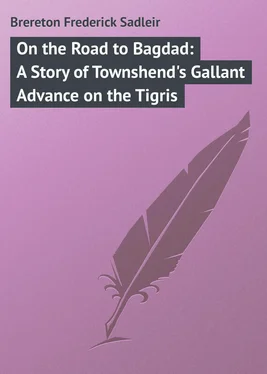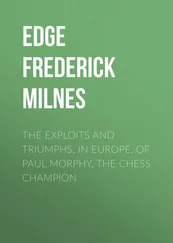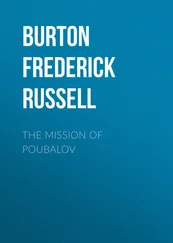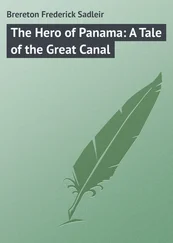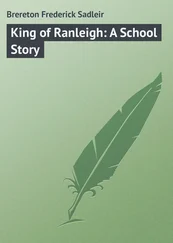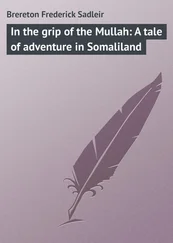Frederick Brereton - On the Road to Bagdad - A Story of Townshend's Gallant Advance on the Tigris
Здесь есть возможность читать онлайн «Frederick Brereton - On the Road to Bagdad - A Story of Townshend's Gallant Advance on the Tigris» — ознакомительный отрывок электронной книги совершенно бесплатно, а после прочтения отрывка купить полную версию. В некоторых случаях можно слушать аудио, скачать через торрент в формате fb2 и присутствует краткое содержание. Издательство: Иностранный паблик, Жанр: foreign_prose, foreign_children, на английском языке. Описание произведения, (предисловие) а так же отзывы посетителей доступны на портале библиотеки ЛибКат.
- Название:On the Road to Bagdad: A Story of Townshend's Gallant Advance on the Tigris
- Автор:
- Издательство:Иностранный паблик
- Жанр:
- Год:неизвестен
- ISBN:нет данных
- Рейтинг книги:4 / 5. Голосов: 1
-
Избранное:Добавить в избранное
- Отзывы:
-
Ваша оценка:
- 80
- 1
- 2
- 3
- 4
- 5
On the Road to Bagdad: A Story of Townshend's Gallant Advance on the Tigris: краткое содержание, описание и аннотация
Предлагаем к чтению аннотацию, описание, краткое содержание или предисловие (зависит от того, что написал сам автор книги «On the Road to Bagdad: A Story of Townshend's Gallant Advance on the Tigris»). Если вы не нашли необходимую информацию о книге — напишите в комментариях, мы постараемся отыскать её.
On the Road to Bagdad: A Story of Townshend's Gallant Advance on the Tigris — читать онлайн ознакомительный отрывок
Ниже представлен текст книги, разбитый по страницам. Система сохранения места последней прочитанной страницы, позволяет с удобством читать онлайн бесплатно книгу «On the Road to Bagdad: A Story of Townshend's Gallant Advance on the Tigris», без необходимости каждый раз заново искать на чём Вы остановились. Поставьте закладку, и сможете в любой момент перейти на страницу, на которой закончили чтение.
Интервал:
Закладка:
Saluting with precision, Geoff dropped out of his saddle, and, leaving Sultan to take care of himself, faced his captive. Then, handling him with that care and tact which residence amongst the Arabs had taught him, and in fact winning his confidence at once – for it was impossible for the Arab chief to have suspicion of this British officer's good intentions – Geoff very quickly gained from him information as to the positions taken up by the Turks and Arabs in the immediate neighbourhood, together with such news as the chief had of forces in other directions.
"But, my master, it is mere rumour – this latter information that I have given you," the chief told him. "I and my men have been posted down beside the river, and know little of what is occurring elsewhere. Doubtless there are Turkish troops here and there, and it may be that in parts there are large forces of them, but between this and Basra they are few. That is true, as Allah hears me!"
As a matter of precaution the chief was handed over to one of the sowars (Indian troopers) as soon as Geoff had repeated to his Commanding Officer what had been stated.
"Then I think we will make short work of those beggars in front of us," said the latter abruptly, as he swung himself into his saddle. "A brush at this stage of the proceedings will liven the men up wonderfully, and will raise the spirits of the Expeditionary Force from India – not that their spirits can be called exactly low, or the men in any way down-hearted."
Setting off at a trot, one of the troops rode to the left of the eminence from which Geoff and his comrades had watched the enemy, while the other took a course to the right and galloped off into the desert. But an officer and a couple of sowars were left on the eminence itself, from which point of vantage they could keep a close watch on the Arab horsemen.
It was perhaps half an hour later that the two troops, separated till then by quite a wide stretch of desert, and hidden entirely from one another and from the enemy by that long, low eminence, converged upon one another and rode out into the open. A careful advance near the bank of the river, where the palms hid them, and the fact that the attention of the Arab horsemen was fixed for the most part on the signallers and their officer left on the eminence, had allowed one troop to get within striking distance of the enemy. Then they suddenly debouched from the trees, and, trotting out into the desert, formed up for a charge; almost at the same moment a cloud of dust far away in the open showed them the position of the second troop, which, riding faster, had got almost beyond the position held by the Arabs. In fact, a rapid movement might enclose the enemy between the two troops, and in any case this menace from two points at once threw them into confusion; shouts were heard from the Arabs, while at once loud reports burst from their ranks, all manner of weapons being discharged at the Indian horsemen. To these was added the sharp, clear-cut snap of modern rifles, with which the Turkish infantry were armed. Then a trumpet blared in the distance, and that cloud of dust suddenly grew bigger, grew bigger and wider, and stretched out till it covered quite a large area. The troop close down by the river, which had just emerged from the trees, cantered out now till six feet of space separated the horsemen.
Then the pennons at the tips of the lances waved, a sharp order snapped down the ranks, and in a trice the lances were lowered. That trumpet blaring in the distance had set every horse in this other troop curveting and prancing, and now, as a note came from their own trumpeter, the horses were off, the men leaning low down in their saddles, their eyes glued on the enemy, their knees gripping their horses, and their lances pointed well out before them.
What a shout those Indian sowars gave! Their comrades coming from the opposite direction answered with a shrill yell of triumph, and then, like a flash, the two troops were launched against the enemy.
Converging as they came, till there were perhaps only some four or five hundred yards between the flanks of each of the troops, the horsemen plunged into the midst of the Arabs. Here and there they had left a horse rolling on the sand behind them, and there was more than one animal without a rider as they got close to the enemy; but nothing stopped the Indians, neither the shouts nor the bullets of the Arabs. With a crash they were in at them, thrusting right and left, riding them down, riding over them, and then it was over. What was left of those Arab horsemen scattered and fled in every direction, leaving the Indian Horse conquerors.
As for Geoff, his fingers trembled as he pulled Sultan in and dropped from his saddle.
"My word," exclaimed Daglish, offering him his cigarette case with a hand which jerked and wobbled badly, "but that was something! If that's war – the sort of war we're likely to have in Mesopotamia – then the more of it we have the merrier. Come here, Keith! I want to know what yarn you've been pitching to our Commander? You've been fibbing, eh? I asked him as we were trotting along through the palm-trees what report you had given. You said nothing about that flare-up with the Arab chief, about the bullets you were idiot enough to wait for, and about the way you captured him. My boy, there's a lively time coming!"
CHAPTER V
News of the Enemy
When the youthful and enthusiastic, and, let us add, immaculately and smartly dressed Daglish of the Indian Horse declared with such gusto to Geoff Keith that there was a lively time coming, and that that young fellow was likely to hear more of the adventure that had befallen him so soon after his landing in Mesopotamia, he attained to only a portion of the truth, and hinted only in some small degree at what our hero was to put up with. Like a flash the tale of his meeting with the Arab chief went round the camp after the return of the Indian Horse, and not even that exhilarating and most dashing charge could swamp the details.
"Wanted at Head-quarters, sir! Colonel – gave me horders to find you at once. Pressing, sir! Ve-e-ery pressing, sir!" said a British "Tommy", as he discovered Geoff in the act of leaving the horse lines, where Sultan had been picketed.
It was always a habit of Geoff's – as it is of every good horseman who possesses a fine animal, and is fond of it – to make it a custom and rule to see to the comforts of his mount before sitting down to eat and drink. Thus, as Geoff came striding away from beneath the palms where the Indian cavalry had picketed their horses, and where the officers' mounts were made fast to a long picketing-rope close beside them, he came face to face with this British "Tommy"; in fact, the man barred his way to the ship still unloading at the river bank, and arrested his further progress. A big, brawny chap, he was sweltering in the moist heat of Mesopotamia, with the perspiration pouring from his forehead and down both cheeks. His thin khaki-twill jacket was sticking to his manly chest in many parts, and showed a number of moist patches. From under his sun-helmet a pair of shrewd, sharp eyes peered at this young officer – the tale of whose adventures had reached the orderly's ears – while a fierce and somewhat grizzled moustache – for the man was an old soldier, who had seen many days' service in India – projected on either side of the chin-strap which secured the helmet. In the smartest possible manner he came to attention, and, shouldering his rifle, saluted briskly.
"Horders, very speshul, sir," he said, his eyes twinkling; and then to himself, and almost aloud – for this gallant fellow had a way of addressing his remarks to no one in particular, and his thoughts to the open: "Lor'! Bless me 'art! If he ain't no more'n a baby, just a mere shaver; and they tells me he speaks this 'ere lingo like a good 'un. Lingo, do they call it? Just a norrible mess o' words, that's what I says, and yer can't make not one of 'em understand. Why, bless me soul! I sees an old chap with coal-black eyes, an' a beard as white as snow, a-sittin' in a doorway o' one of the things round 'ere they calls 'uts – 'uts, is they? My word! My uncle! – as some of these 'ere orficer men calls it – just 'oles I call 'em. 'Uts! And there was that there man – more like a monkey he looked – and though I shouted at 'im, not a word could he understand, nor me the lingo he flung back at me. I should say – "
Читать дальшеИнтервал:
Закладка:
Похожие книги на «On the Road to Bagdad: A Story of Townshend's Gallant Advance on the Tigris»
Представляем Вашему вниманию похожие книги на «On the Road to Bagdad: A Story of Townshend's Gallant Advance on the Tigris» списком для выбора. Мы отобрали схожую по названию и смыслу литературу в надежде предоставить читателям больше вариантов отыскать новые, интересные, ещё непрочитанные произведения.
Обсуждение, отзывы о книге «On the Road to Bagdad: A Story of Townshend's Gallant Advance on the Tigris» и просто собственные мнения читателей. Оставьте ваши комментарии, напишите, что Вы думаете о произведении, его смысле или главных героях. Укажите что конкретно понравилось, а что нет, и почему Вы так считаете.
